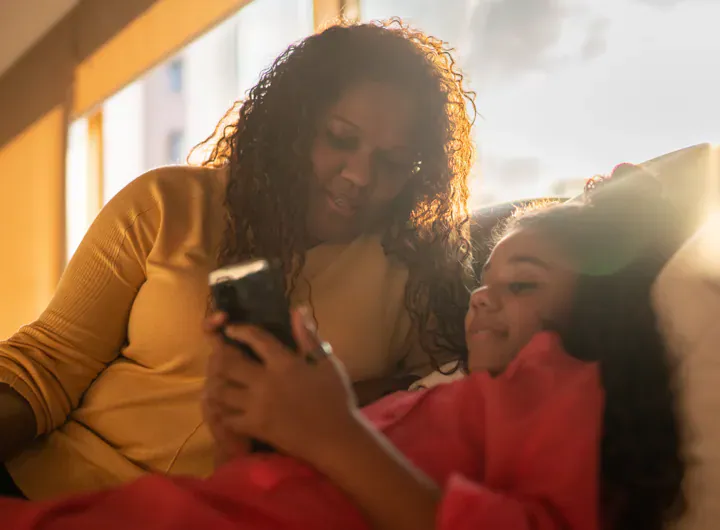Parenting survey reveals overwhelming concern about cyberbullying and online safety

This National Bullying No Way Week (12-16 August), Triple P is reminding the community how crucial it is to help children stay safer online and stop cyberbullying before it impacts a child’s life.
Carol Markie-Dadds, Triple P International Country Director, highlighted the urgency of this issue, noting Triple P's largest-ever survey of parents and carers found that 8 out of 10 parents are concerned about keeping their children safe from online dangers like cyberbullying. Of further concern, parents with children aged 6-11 years are the least confident in their ability to know what to do if their child is getting bullied.
“Bullying, whether it's online through text or social media, or in person, has a significant impact on children’s emotional and physical health, and puts children at greater risk of mental health concerns, like anxiety or depression,” Ms Markie-Dadds said.
“This national week of action is a timely reminder that parents and carers play a key role in preventing and helping their children respond to bullying in all its forms. With the increasing prevalence of bullying online, parents can help kids develop the knowledge, skills, and awareness they need to navigate the online world confidently and safely.”
“It takes time and practice for children to learn how to spot potentially unsafe situations, make good decisions, and know when to speak to a trusted adult if something worrying happens. Having honest and regular conversations with our kids makes a big difference in helping children develop these skills at home, in school, and in the wider community,” she said.
Triple P’s Top Three Ways to Talk to Kids about Cyberbullying
Start the conversation
You don't always have to have long, serious talks about cyberbullying. Casual, frequent chats work well too. With younger kids, keep it simple and talk about being kind online. With tweens and teens, respect their need for more privacy and show interest in their online activities, encourage them to consider the impact of their messages, to respect others’ differences, and to expect the same for themselves.
Help kids feel prepared
"What if" scenarios help kids feel prepared to handle tricky situations. For younger children, you could ask them how they would feel if a stranger tried to message them while they were playing a game online. Discuss what they could do, like telling a grown-up about the message. With teens, you could talk about how they would feel if they saw hurtful comments about a classmate on social media and explore ways they could respond. Be open to their opinions and ideas.
Create a calm, supportive space
Kids often feel embarrassed or scared to talk to their parents about things happening online, especially if they think they'll get in trouble. Tell them it's okay to feel afraid or worried, and they won't get in trouble for coming to you. Stay calm and let them know you're available to listen and help, no matter what.
“If there are concerns that your child is being bullied online, you can seek help from your school, eSafety or Kids Helpline.
“Bullying can seriously impact a child’s mental health and wellbeing throughout their school years and well into adulthood,” Ms Markie-Dadds says.
“It can be a daunting issue, but it’s important that parents can confidently manage and have oversight over what social media and other digital tools their children are accessing. Platforms, including online games, may initially appear innocuous, but could actually be used for bullying. A great first step is to talk with your child about bullying and online safety - It’s never too early for schools, parents, carers, kids and the wider community to build their skills and awareness together,” she said.
Triple P’s free online parenting programs help anyone in a parenting role to confidently handle challenges and raise happy, capable, resilient kids. There’s a free online program for raising kids aged 0-12, and another specifically for parents and carers of kids who are frequently anxious.

